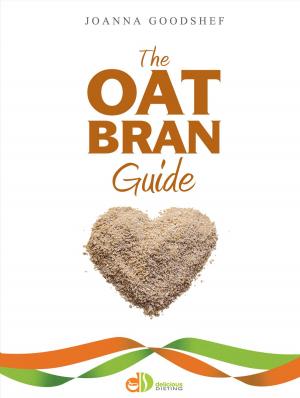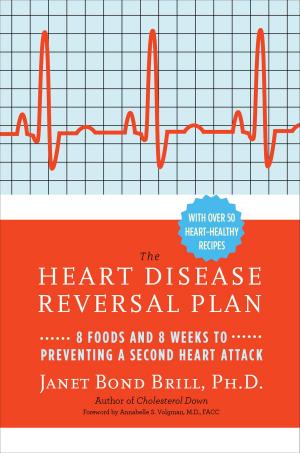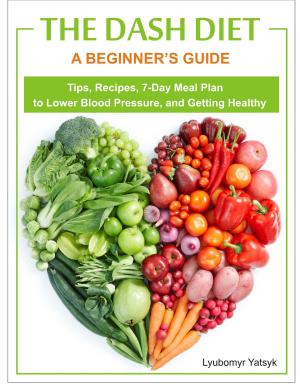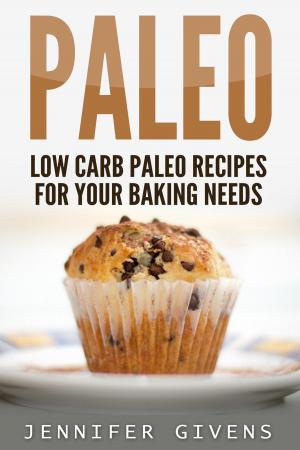| Author: | Scott Abel | ISBN: | 9781514195697 |
| Publisher: | Scott Abel | Publication: | October 26, 2016 |
| Imprint: | Language: | English |
| Author: | Scott Abel |
| ISBN: | 9781514195697 |
| Publisher: | Scott Abel |
| Publication: | October 26, 2016 |
| Imprint: | |
| Language: | English |
Why do you we reach for that piece of chocolate?
Why do we "cheat" or binge on our diets, especially after things have been "going so well"?
What causes over-eating, cravings, and why do we "cheat" on our diets?
This book gets to the root causes behind food, eating, and weight issues. If you struggle to keep weight off, or if you struggle to stick to a diet for longer than a few weeks, this book is for you. It's about addressing your habits and the underlying causes behind your food issues.
In the modern world, we are seeing raising body weights, an increasing prevalence of food addiction, overeating, and eating disorders. The previous "unconscious mechanisms" that kept our body weights in check have disappeared.
Part One addresses all the various ways things are stacked against us in our modern world. It discusses the reward center of the brain, and how it interacts with various modern environmental and cultural influences that cause things like food addiction and overeating. It talks about how our bodies are evolved to fight against fat loss, and prefer weight gain. It talks about recent changes in food industry, and the ways in which it specifically engineers "hyper-palatable" foods that have a very specific effect on your brain and your psychology. It discusses the importance of cues, your emotions, stress, and what every person needs to be **"aware" **of if you are going to truly solve your food, dieting, or weight issues. The main argument here is that a food or eating issue is actually rarely a metabolic issue. Most of the time there are other things at play.
Part Two is all about solutions to food, dieting or over-eating issues. The solutions are not metabolic, or about going on another diet. This section is about higher (self) awareness, the truth about behaviour modification and habit reversal, and what it truly takes to get rid of an eating or food issue. There are no "one-size-fits-all" simple recipes for this kind of thing -- because each food issue is unique, so too will each solution be unique (even if the principles underlying the solutions are the same). Part Two is about becoming more aware, and learning to listen to your own body, your brain, and your thoughts, to achieve a higher level of food awareness. There are specific instructions you can follow, with advice about applying them to your own situation.
Beyond Metabolism includes:
• A special questionnaire to address the specifics of your food, dieting, or eating issues
• The real biology of weight control and metabolism
• The emotion of food, and the cognitive associations your brain creates
• "Habit Reversal": How to reverse unwanted habits
• How to tell if you have a real food addiction to a specific food
• How "another diet" will never solve your current issues
• Five Steps to Food Freedom
• How to use the essential principles of behaviour modification for your food issue
Buy up your copy of Beyond Metabolism now.
Why do you we reach for that piece of chocolate?
Why do we "cheat" or binge on our diets, especially after things have been "going so well"?
What causes over-eating, cravings, and why do we "cheat" on our diets?
This book gets to the root causes behind food, eating, and weight issues. If you struggle to keep weight off, or if you struggle to stick to a diet for longer than a few weeks, this book is for you. It's about addressing your habits and the underlying causes behind your food issues.
In the modern world, we are seeing raising body weights, an increasing prevalence of food addiction, overeating, and eating disorders. The previous "unconscious mechanisms" that kept our body weights in check have disappeared.
Part One addresses all the various ways things are stacked against us in our modern world. It discusses the reward center of the brain, and how it interacts with various modern environmental and cultural influences that cause things like food addiction and overeating. It talks about how our bodies are evolved to fight against fat loss, and prefer weight gain. It talks about recent changes in food industry, and the ways in which it specifically engineers "hyper-palatable" foods that have a very specific effect on your brain and your psychology. It discusses the importance of cues, your emotions, stress, and what every person needs to be **"aware" **of if you are going to truly solve your food, dieting, or weight issues. The main argument here is that a food or eating issue is actually rarely a metabolic issue. Most of the time there are other things at play.
Part Two is all about solutions to food, dieting or over-eating issues. The solutions are not metabolic, or about going on another diet. This section is about higher (self) awareness, the truth about behaviour modification and habit reversal, and what it truly takes to get rid of an eating or food issue. There are no "one-size-fits-all" simple recipes for this kind of thing -- because each food issue is unique, so too will each solution be unique (even if the principles underlying the solutions are the same). Part Two is about becoming more aware, and learning to listen to your own body, your brain, and your thoughts, to achieve a higher level of food awareness. There are specific instructions you can follow, with advice about applying them to your own situation.
Beyond Metabolism includes:
• A special questionnaire to address the specifics of your food, dieting, or eating issues
• The real biology of weight control and metabolism
• The emotion of food, and the cognitive associations your brain creates
• "Habit Reversal": How to reverse unwanted habits
• How to tell if you have a real food addiction to a specific food
• How "another diet" will never solve your current issues
• Five Steps to Food Freedom
• How to use the essential principles of behaviour modification for your food issue
Buy up your copy of Beyond Metabolism now.















